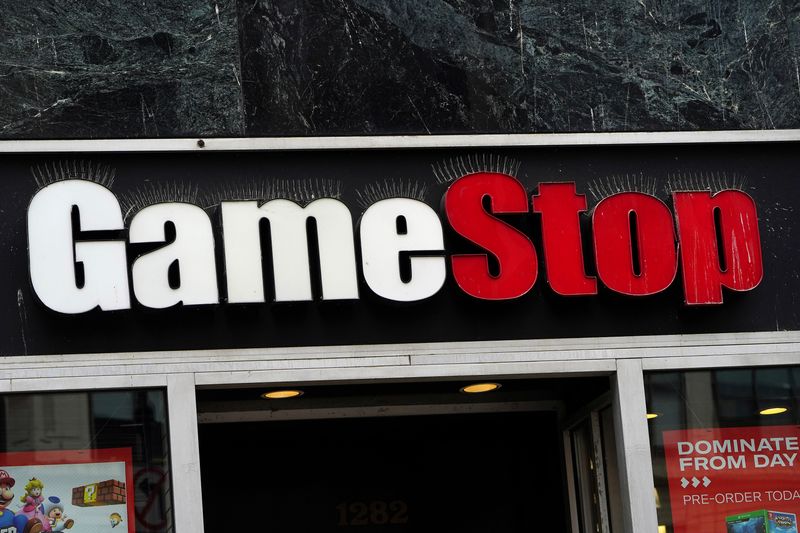Factbox-How the SEC has bolstered the US market since the 2021 GameStop frenzy
2024.06.05 06:26
By Michelle Price
WASHINGTON (Reuters) – The latest resurgence of retail trading in GameStop (NYSE:) follows major changes aimed at boosting the resilience and transparency of the market following the 2021 “meme stock” saga.
GameStop shares surged on Monday after the stocks influencer “Roaring Kitty” returned to Reddit with a post showing a $116 million bet on the embattled videogame retailer.
It was the first post from the account since 2021 when a meteoric rally in GameStop and other “meme stocks” partly stoked by “Roaring Kitty” caused intense volatility, prompting brokers to restrict trading in some shares and causing massive losses for hedge funds that had bet against them.
Since then, the Securities and Exchange Commission (SEC) has adopted or proposed broad changes to fix structural problems highlighted by that extraordinary episode. Here are the key ones:
T+1 SETTLEMENT
The 2021 meme stock volatility prompted the post-trade clearing house to call on retail brokerages including Robinhood (NASDAQ:) to post billions of dollars in extra collateral to guarantee their retail clients’ trades. In response, several brokers restricted trading in the affected stocks.
Robinhood CEO Vlad Tenev said at the time that the problem was largely due the two days it takes trades to settle, and if settlements were in real time so much collateral would not be necessary.
Partly in response to that episode, the SEC has moved U.S. equities, corporate and municipal bonds and other securities, to a one business day settlement cycle, known as T+1 settlement.
That market overhaul went into effect last week.
SHORT SELLING, HEDGE FUND DISCLOSURES
Most of the stocks in the 2021 meme saga were heavily shorted by hedge funds – a strategy used to bet a stock price will fall. While the SEC said in its October 2021 post-mortem that the available data did not suggest foul play when it came to such short sales, SEC Chair Gary Gensler said greater transparency of short selling may be warranted.
The SEC has since adopted new rules to boost hedge fund disclosures around their investment exposures, counterparty exposure and other risks, as well as short selling positions.
Some of its changes are being challenged by the industry in court.
MARKET STRUCTURE
2021 shone a spotlight on what Gensler has said are problems in the retail trading market. Rather than sending customer orders to exchanges, most retail brokers send them to wholesale market makers in return for a fee, a practice known as payment for order flow.
Critics say the practice creates conflicts of interest by incentivizing brokers to encourage customers to trade more frequently. Studies show retail investors generally lose money when they churn their portfolio. The small number of market makers also limits competition, critics argue.
In 2022, the SEC proposed sweeping changes that aim to address these issues, in part by creating more incentives to send retail orders to exchanges. The agency expects to finalize that rule sometime this year, according to its public agenda.
DIGITAL TRADING PROMPTS
Gensler has criticized the “gamification of trading” in which brokerages encourage excessive trading using lights, noises, notifications and other gimmicks to generate more payment for order flow.
He has also highlighted the use of artificial intelligence, predictive data analytics and machine learning to push products.

Last year, the SEC proposed rules requiring broker-dealers to “eliminate or neutralize” any conflict of interest that occurs if a trading platform’s predictive data analytics puts the broker’s financial interest ahead of clients’.
That rule has run into intense opposition and Gensler last month told reporters he was considering re-proposing it.








